Interviews with Palestinians aiding grassroots resistance to occupation. Palestinians have a history of grassroots organising to resist occupation and overcome repression. Their approach is communal and their work innovative.
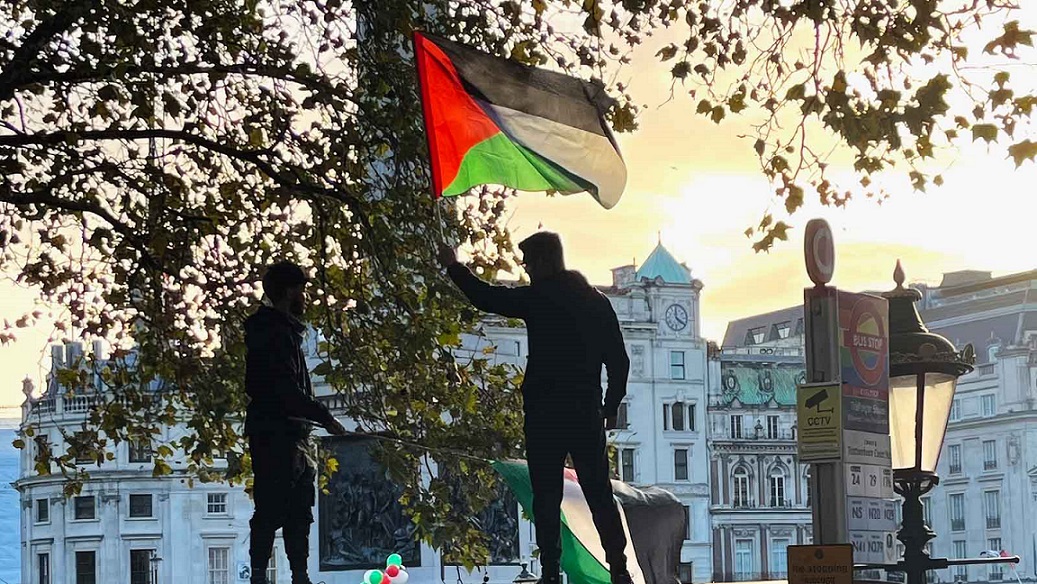
This occupation is different
Until now we have been strangers. We haven’t spoken, we haven’t met. We live 4,000 miles from each other, on two different continents but I am intrigued by a comment Reem Monzer Elkhaldi makes during a recent webinar about Palestine:
“The fathers come back different, changed. The relationship with their children is changed. Some of the children talk about not recognising their father’s behaviours. Family relationships are adversely re-configured.”
Several days later we speak for the first time. Reem tells me she grew up in Florida, the daughter of Palestinian parents. She attended school and then university, graduating with a Judicial Doctorate degree from Barry University. She went on to serve as an Assistant State Attorney in Orlando with a focus on gender-based violence and crimes against children.
Reem maintained her Palestinian ties and began collaborating with communities in Ghazzah to provide food, clothing, and shelter. Through her work and field visits, Reem quickly realised how different things are in Ghazzah:
“I thought I would go there and help them with all the training I had. What I quickly realised was that nothing I had been taught prepared me for what I experienced. Every family has at least one martyr, or at least one family member who has been in detention, and this has been going on for years. It takes a toll.”
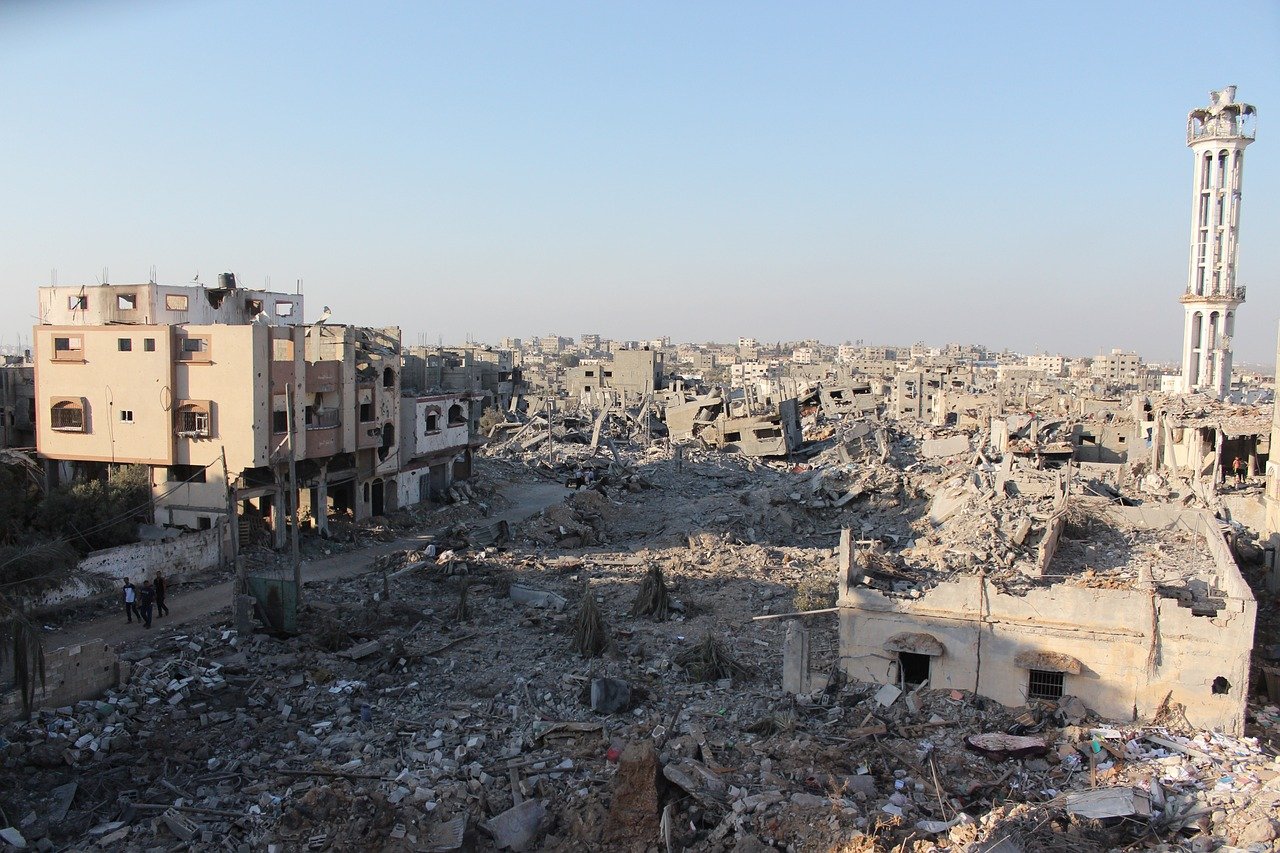 We listened
We listened
Reem spent hours talking directly to members of the community, including parents and children. With the mind of a seasoned lawyer, she mapped out the violent effects of Israel’s colonial behaviour. Reem is articulate and can straightforwardly explain how the occupier’s policies wreak havoc on the most basic social organising unit – the family.
Reem recounts a first-hand testimony shared with her by a Palestinian child:
“When my dad came back from prison, he was different. He was not as patient; he smoked a lot and got angry. He never used to hit us before he went to prison.”
Reem understands the Palestinian struggle because she is of the struggle. She recounts an earlier journey from Florida to Palestine when she was seven, or perhaps eight, and how she, her five siblings and her mother were stranded for three days at the border crossing, ignored and at times ill-treated by both Israeli and Egyptian officials.
“We were humiliated throughout the process.” recalls Reem.
Healing our homeland
Reem can access the lived Palestinian experience despite her diaspora upbringing and as a result she established Healing Our Homeland (HoH) in 2015, officially registering it in 2022. Unlike many NGOs Reem’s organisation is a grassroots movement undertaking locally-sponsored action to heal and empower communities.
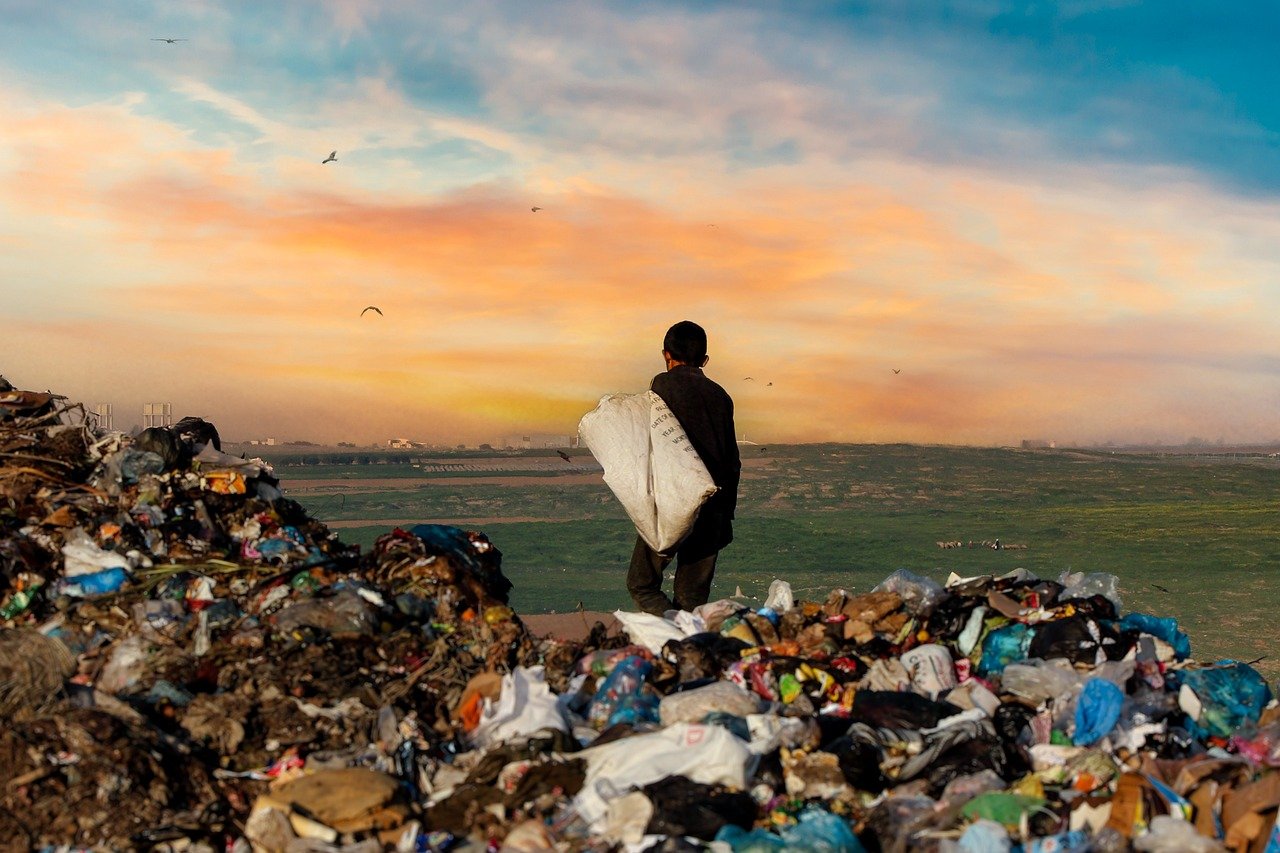 Too often we see well-meaning professional charities, foreign government bodies and international aid organisations operating at arm’s length, leaving them somewhat isolated from the realities of everyday occupation, repression, and violence.
Too often we see well-meaning professional charities, foreign government bodies and international aid organisations operating at arm’s length, leaving them somewhat isolated from the realities of everyday occupation, repression, and violence.
“If you’re an NGO individual going into Ghazzah City, living in your high rise, and attending meetings with other professionals you’re going to miss what’s glaringly obvious.”
HoH is unambiguous – it resists the seventy-six-year occupation and urges liberation because the collective we “cannot truly heal while in a constant state of oppression.” The truth is piercingly simple.
HoH uses a highly localised approach to provide aid and support to the women and children of Ghazzah. Their assistance is unconditional and from within the communities they serve; the work is about enriching communities organically, not remaking them.
For our mothers, sisters, and children
Why has HoH prioritised women and children I ask?
It’s the maths: every child in Ghazzah under the age of fourteen will have experienced four major military assaults by Israel, and that excludes the genocide which began on October 7th, 2023. Children in Palestine “grow up before their time” as they’re unable to process the death and violence around them, leading to high numbers struggling with severe anxiety, stress and trauma.
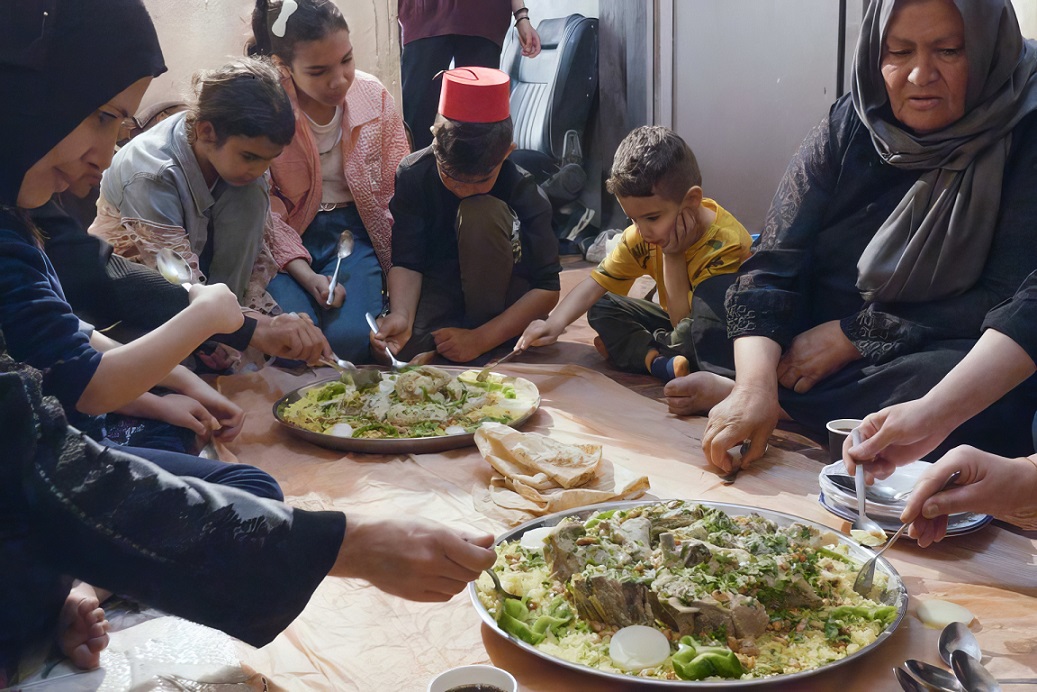
Women are equally vulnerable. Many face “systemic and structural violence and are denied basic human rights such as freedom of movement, access to education, economic opportunities, and reproductive health.”
HoH supports an average of 300 women and children a week providing child development, self-care, and trauma-informed care services, as well as food and shelter.
Since October 7th 2023, Israeli forces and their sponsoring states have executed over 34,000 Palestinians; 10,000 were women, 15,000 were children. One of the murdered children is Sabreen Jouda, who was delivered by emergency caesarean section while her mother, Sabreen al-Sakani, lay dying after an Israeli air strike. Sabreen Jouda was five-days old when she took her last breath.
Re-building in the shadows
“Our work is mainly carried out at night, under the cover of darkness. And we must work quickly. We erect water tanks, build roads, and put up houses – hopefully before anyone notices.”
We meet in a house somewhere in Surrey. Exactly where doesn’t matter because it couldn’t be further from the hazardous occupied West Bank, where these brave acts of resistance are happening. The West Bank is fast becoming deadly for Palestinians, with over 500 executed in 2023 and a further 7,000 arrested and detained. Nightly raids by Israeli Occupying Forces (IOF) are a regular terror tactic designed to frighten, bully, and intimidate.
Seated opposite me is MT. Unremarkable in appearance you could be excused for not noticing him at the local supermarket checkout line. Dressed in dark trousers, a chequered open neck shirt and a plain v-neck sweater this middle-aged man could easily slip into a crowd unobserved.
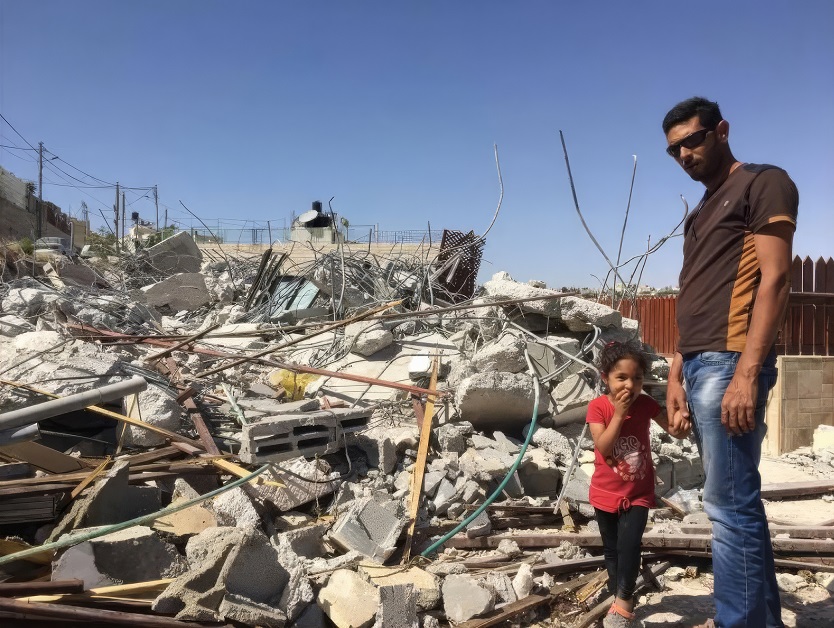
Sumud
“We operate on the principles of Sumud” MT tells me.
There is no direct translation of Sumud into English, it is uniquely Palestinian, and for almost eight decades it has proven to be the bedrock on which Palestinians have resisted Israel’s illegal occupation, brazen land theft, and cruel apartheid regime. Sumud is a mindset, a psychological state that produces a heightened capacity for survival and for being able to cope and adapt to stress and adversity. It is the steadfast defiance of occupation and oppression.
A life informed
While MT’s appearance is indistinguishable, his experiences are rich and varied. MT’s parents lived in exile in the Middle East and as a young child he found himself part of the Palestinian diaspora. Responsibility was handed to him early – he was the eldest of five children. He grew up in a politically informed household – aren’t all Palestinian households politically informed he asks – and enjoyed the energy of city living. MT moved to the US to complete his tertiary education; he would go on to gain two Masters degrees. As a young man MT enjoyed a close relationship with his uncle, who selflessly served his local community. This relationship strongly influenced MT’s notion of communal solidarity.
When MT returned to the West Bank, he witnessed first-hand the effects of the occupation. A subjugated people struggled with life’s basics. Settler violence towards Palestinian landowners was widespread, illegal demolition of Palestinian homes was prevalent and the ongoing displacement of Palestinians from their land was at alarming levels.
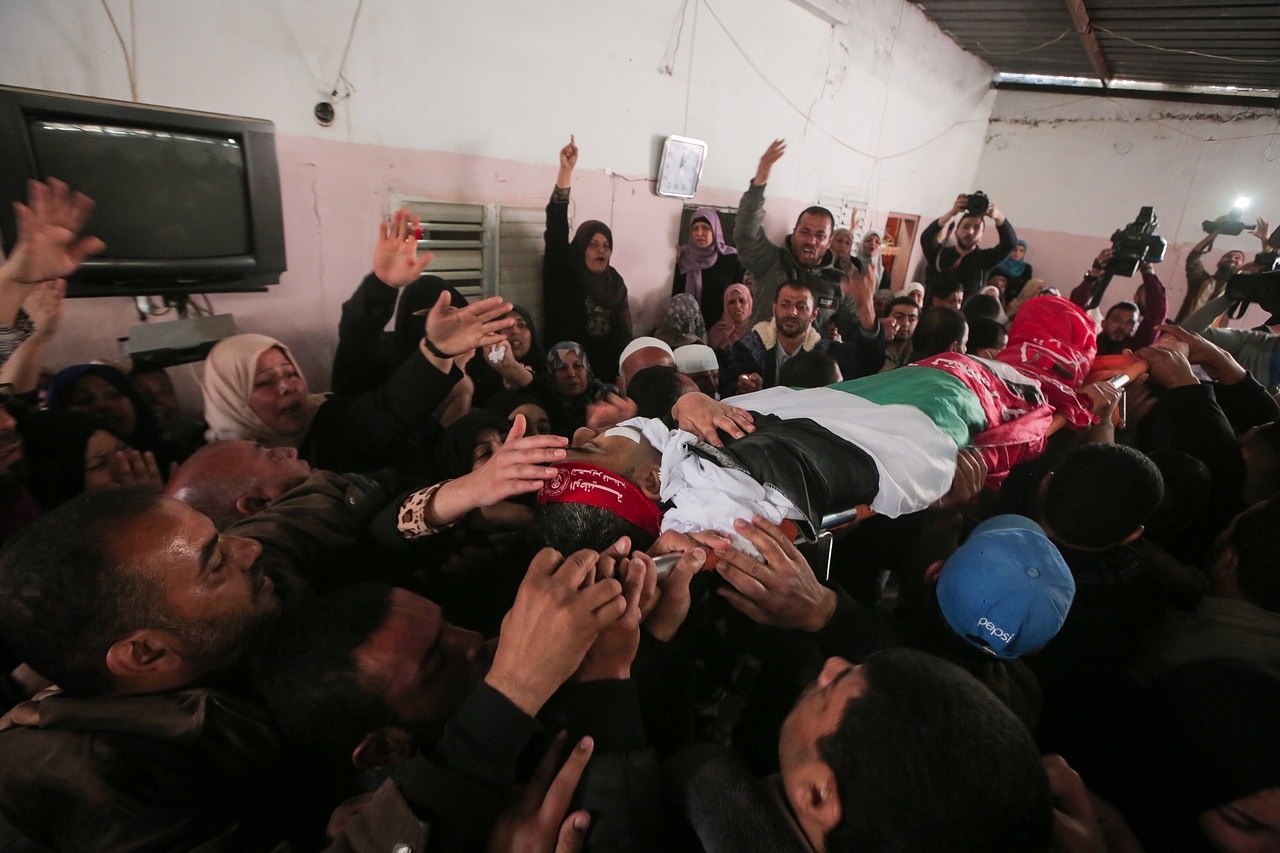 A bias for action
A bias for action
It was time to act: Sumud. MT’s first act of resistance was to help fund studies for students. Next, he rallied friends and family to support with light construction – a repaired road, a restored water tank, a renovated playground, a refurbished classroom.
“My aim was simple: keep the Palestinians on their land. Provide them with the basics like electricity, water, and shelter.”
MT was also adamant – listen to the community, they knew best what was needed. As word spread the projects got bigger and more complicated. Communities needed help as their village infra-structure was vandalised by settlers or demolished by the IOF under dubious pretences. But simply rebuilding was a high-risk endeavour.
Israel’s legal system is a sham designed to add a veneer of legitimacy, for an international audience, to its ongoing land theft. But if you are familiar with its inner workings, you can briefly bend the process in your favour. You will never win but you can produce small, temporary victories.
Palestinians are rarely awarded building permits in the West Bank despite having land deeds, so they are forced to build dwellings without planning permission from the occupying power. These buildings will subsequently be earmarked for demolition; appeals will be filed, advanced, and then rejected. The process is multi-staged so can take up to five years before a final demolition order is given. In that time a Palestinian family will enjoy the short-term security and comfort of a home. The IOF will eventually move in with their Caterpillar D9 bulldozers and rip the dwelling apart.
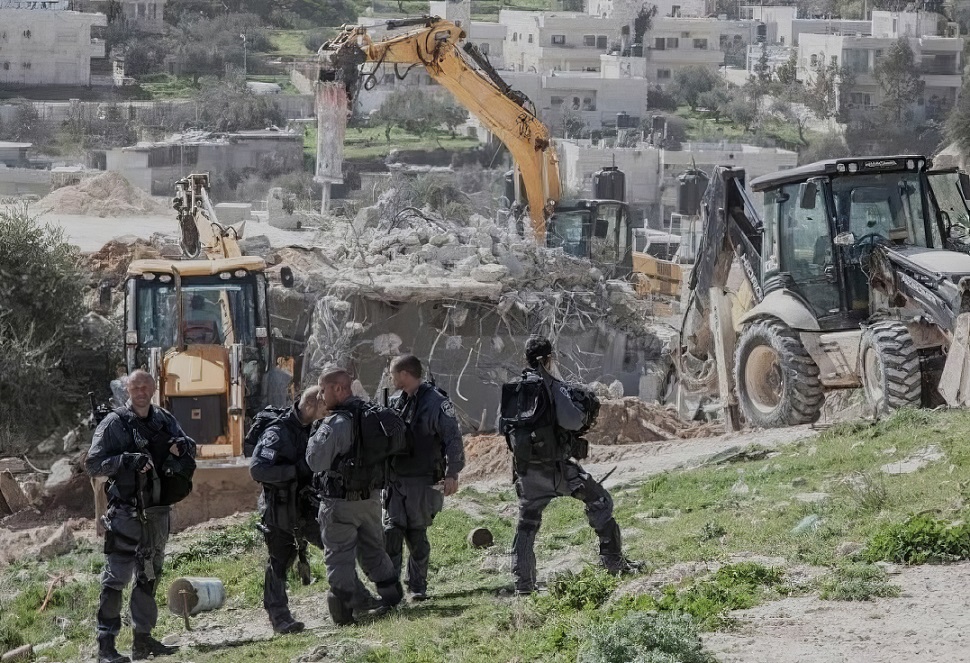
The trick is to assemble a house, or erect a water tower, or construct a classroom before the authorities notice – by building at night or during extended Israeli holiday periods – and then stretching the legal process for as long as possible. This is the psychology of survival under occupation.
MT now has several projects he and his team of volunteers are involved with, as well as a growing network of supporters.
“We still have no mission statement and no bureaucracy. Communities decide what they need, and we try to help them make it happen. Our mandate is what the communities tell us.” MT shares photos of his most recent projects. The work is simple but much needed. Funding for education, food parcels, and transport solutions for school children.
Next, he shows me a picture of a red biplane.
“I did a wing walk; you know, strapped to the wing of a plane while it’s flying. And a sky-dive. Bungee jump. Paragliding. Abseiling. I did them all to raise money for the communities I help.”
I look at MT and imagine this middle-aged man hurtling towards the ground, bungee strap fitted to his ankles, so he can help lay asphalt to connect two villages, or buy a water tank, or fit solar panels to a home somewhere in the West Bank. MT is using a form of direct action by quietly affirming Palestinians’ right to their land.
As I drive away from our meeting, and MT prepares to fly away to the West Bank, I think about his clandestine resistance, a resistance based not on sabotage but on kindness and carried out as the rest of us sleep safely in our beds. I remember reading somewhere that if you can’t affect the macro then act on the micro, show up in the moment and help. I realise we need more MTs.
*MT is a pseudonym.
*Article published originally in Real Media.
(Photos: Real Media and Pixabay)












.jpg)












